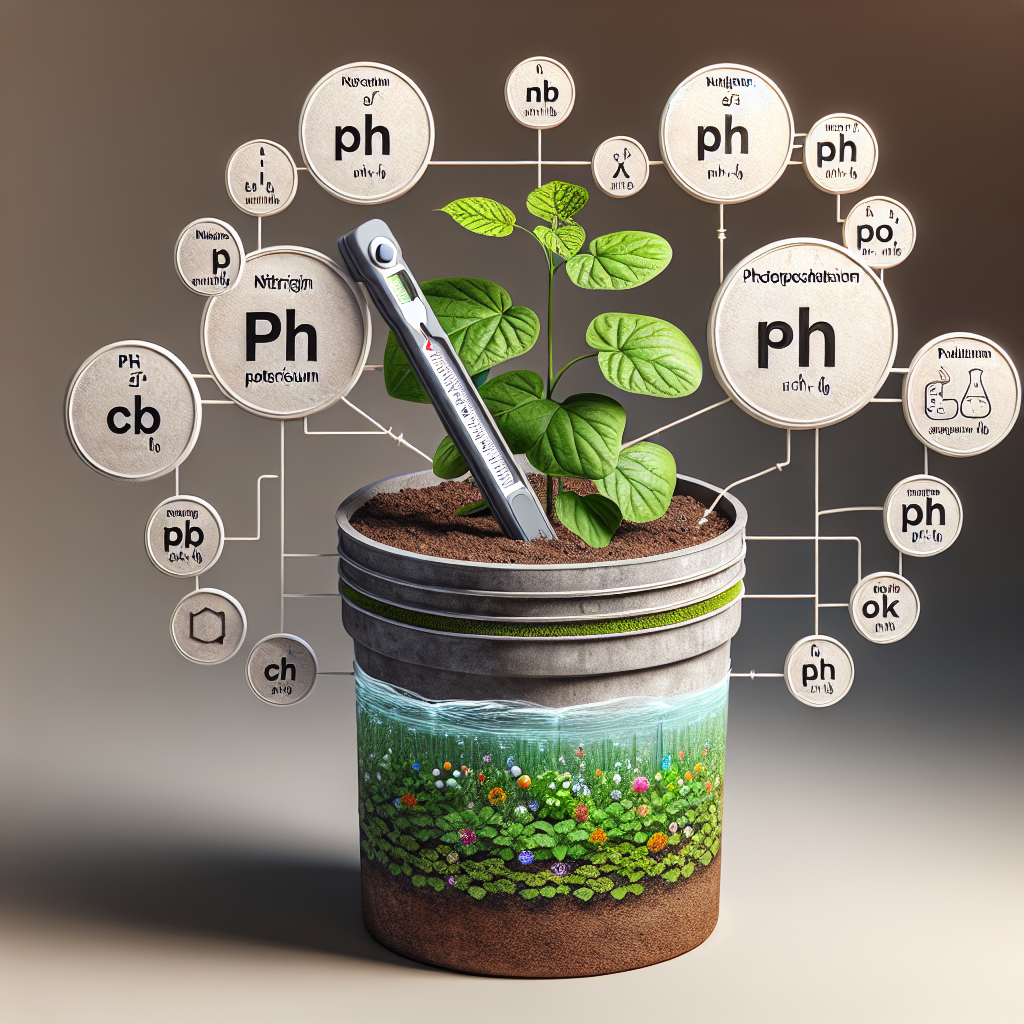Container gardening is a popular way to bring greenery and life into your home, patio, or balcony. Whether you are growing flowers, herbs, vegetables, or even small trees in containers, one important factor to consider is the soil pH and nutrition levels. Soil pH refers to the acidity or alkalinity of the soil, which can greatly impact the availability of nutrients to your plants. By understanding how to tailor soil pH and nutrition to meet the specific needs of your container plants, you can ensure they thrive and grow healthy.
In this article, we will explore the relationship between soil pH and plant nutrition in container gardening. We will discuss why soil pH is important, how it affects nutrient availability, and practical ways to adjust the pH levels of your container garden soil. By the end of this article, you will have a better understanding of how to create an optimal growing environment for your container plants by customizing soil pH and nutrition levels to suit their individual needs.
**The Importance of Soil pH in Container Gardening**
Soil pH plays a crucial role in determining the overall health and growth of your plants. The pH scale ranges from 0 to 14, with 7 being neutral. Most plants prefer slightly acidic to neutral soils, with a pH range between 6.0 and 7.0. When the soil becomes too acidic (pH below 6) or too alkaline (pH above 7), it can affect nutrient availability and uptake by plants.
Plants have specific nutrient requirements for optimal growth, including essential macronutrients such as nitrogen (N), phosphorus (P), potassium (K), calcium (Ca), magnesium (Mg), and sulfur (S), as well as micronutrients like iron (Fe), manganese (Mn), zinc (Zn), copper (Cu), boron (B), molybdenum (Mo), chloride (Cl), and nickel (Ni). These nutrients are most readily available to plants within certain pH ranges. For example, iron becomes less available in alkaline soils, leading to yellowing leaves due to iron deficiency.
**Adjusting Soil pH for Container Plants**
To ensure that your container plants have access to essential nutrients at optimal levels, it is important to adjust their growing medium’s pH based on their specific needs. Here are some practical tips for tailoring soil pH in container gardening:
1. **Test Your Soil:** Before making any adjustments, test the pH level of your container plant’s growing medium using a soil test kit or meter. This will give you an accurate reading of the current acidity or alkalinity levels.
2. **Acidifying Agents:** If your soil is too alkaline for your plants’ liking, you can lower its pH by adding acidifying agents such as elemental sulfur or aluminum sulfate. These substances help increase soil acidity over time when mixed into the growing medium.
3. **Lime:** On the other hand, if your soil is too acidic, you can raise its pH by adding lime-based products like dolomitic lime or agricultural lime. Lime helps neutralize acidity and provide essential calcium for plant growth.
4. **Organic Matter:** Incorporating organic matter like compost or aged manure into your container plant’s growing medium can help buffer extreme fluctuations in soil pH by improving its overall structure and nutrient content.
5. **Balanced Fertilization:** Use balanced fertilizers specially formulated for container plants that contain essential macronutrients and micronutrients at appropriate levels based on your plant’s nutritional requirements.
**FAQs on Soil pH and Nutrition in Container Gardening**
1. How often should I test my container plant’s soil pH?
It is recommended to test your growing medium’s pH at least once every growing season or whenever you notice signs of nutrient deficiency in your plants.
2.What are common signs of nutrient deficiency due to improper soil pH?
Symptoms include yellowing leaves caused by iron deficiency in alkaline soils, stunted growth from nitrogen deficiency in acidic soils, or poor fruit development due to calcium deficiency at extreme acidity levels.
3.Can I use household items like vinegar or baking soda to adjust my plant’s soil pH?
While these items may temporarily alter soil acidity levels when added directly into the growing medium as quick fixes, they are not recommended for long-term use due to potential harm to beneficial microbes and imbalances in nutrient availability.
4.What is the ideal range for most container plants’ optimal growth?
Most container plants thrive best within a slightly acidic to neutral range between 6.0-7.0 on the pH scale where essential nutrients are readily available without causing toxicity issues.













